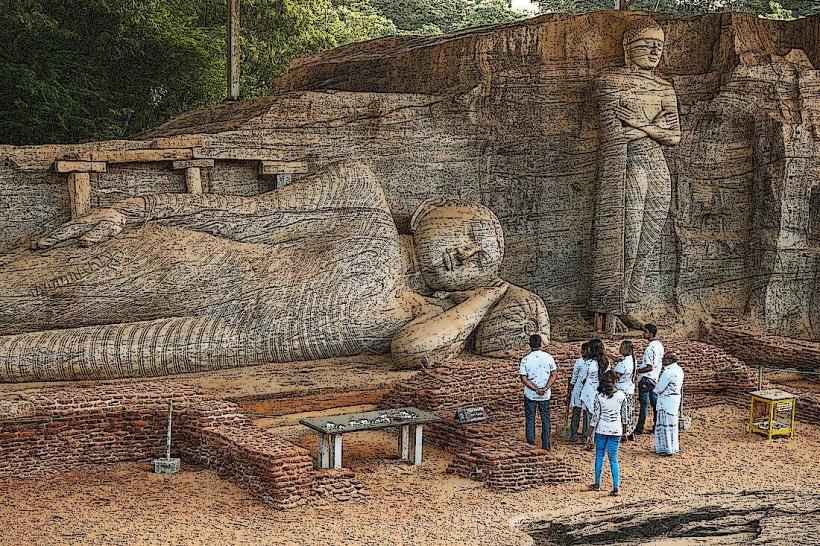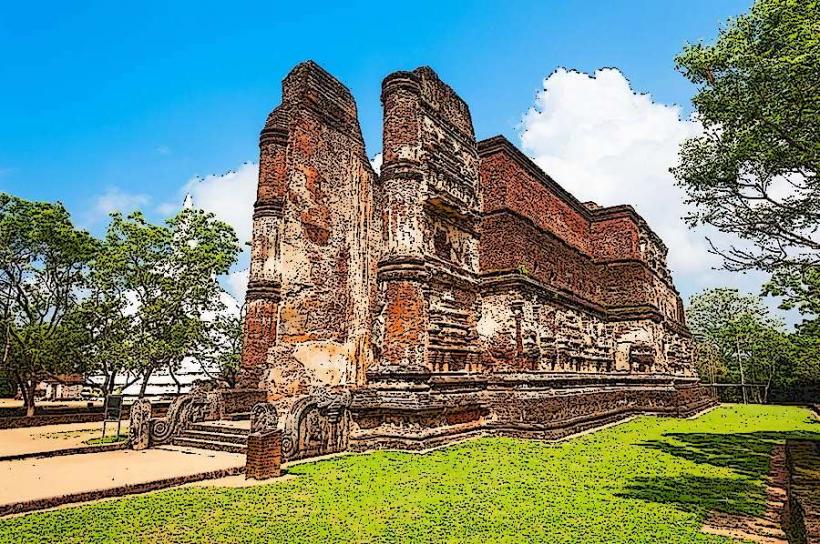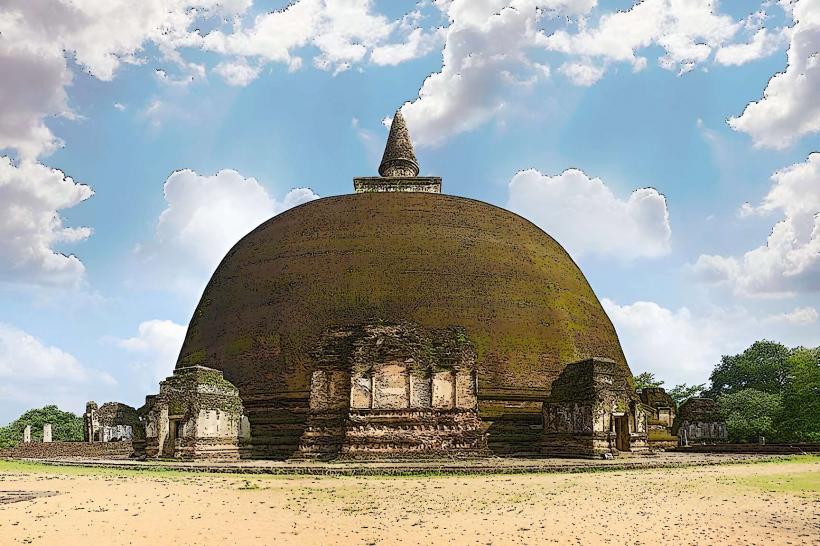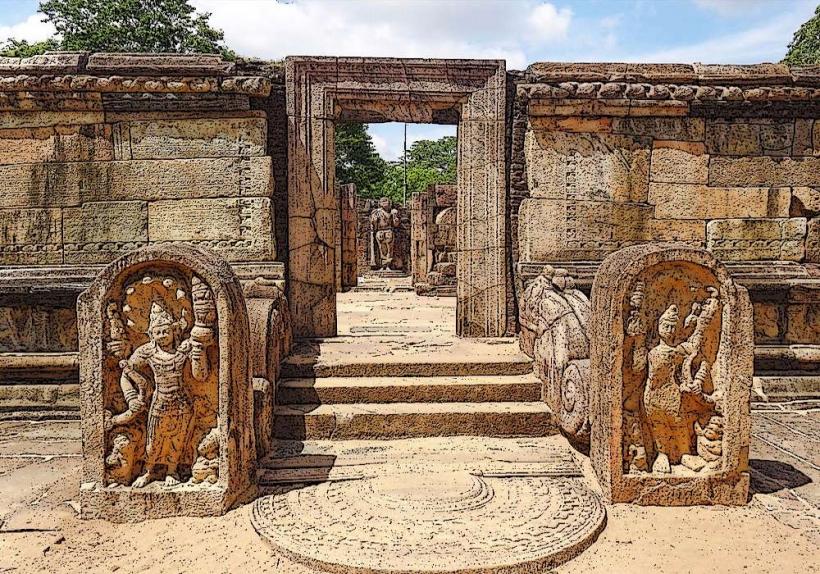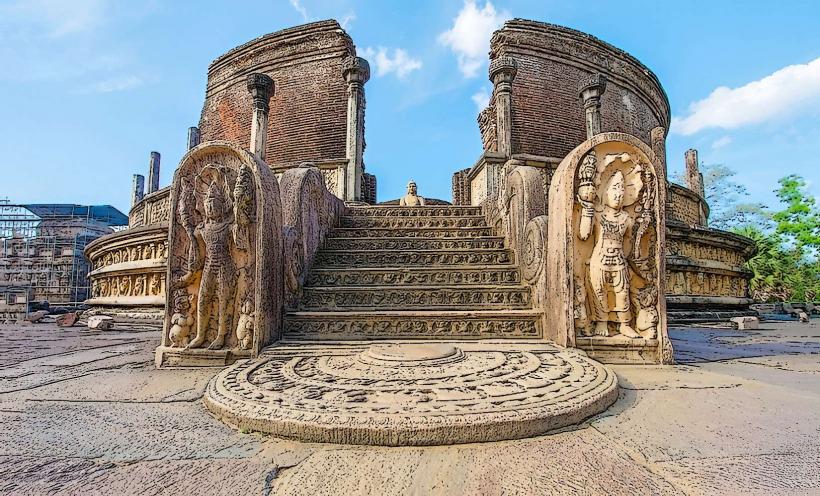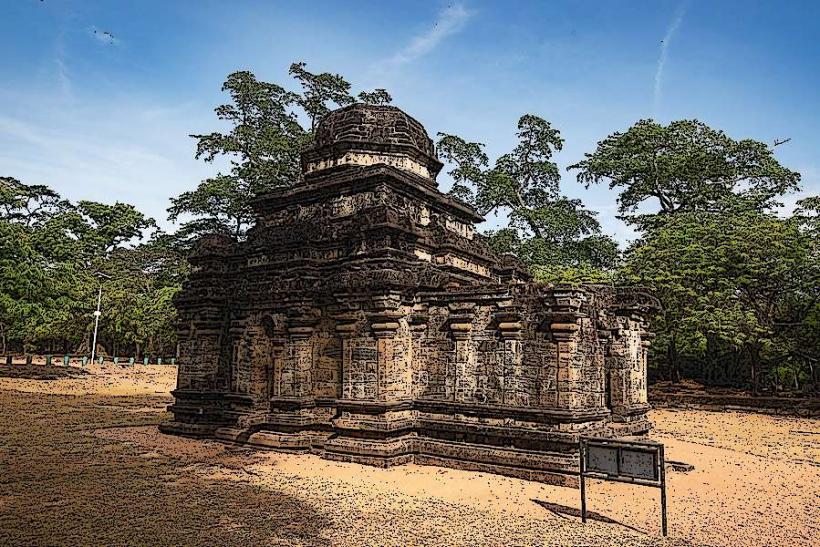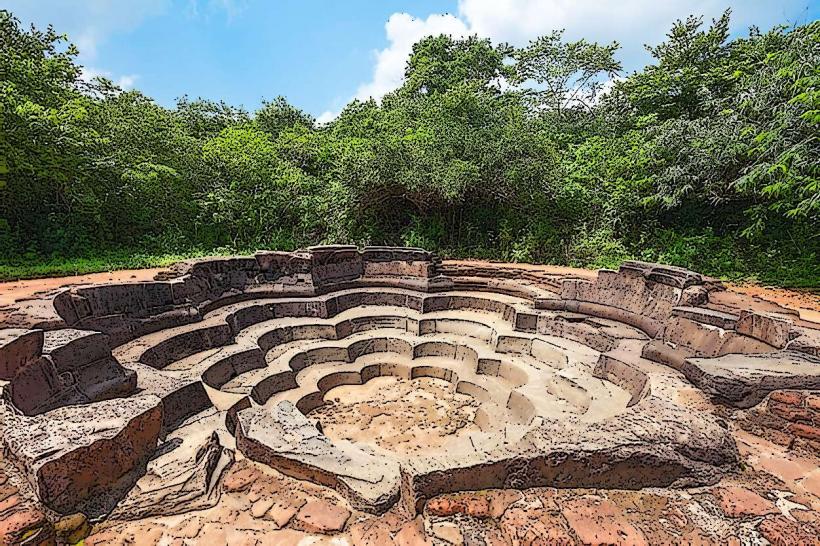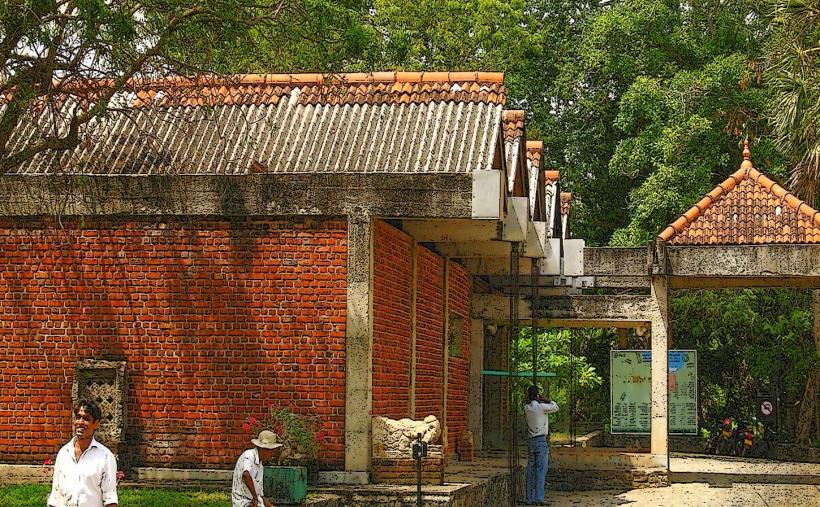Information
Landmark: Nissanka Latha MandapayaCity: Polonnaruwa
Country: Sri Lanka
Continent: Asia
Nissanka Latha Mandapaya, Polonnaruwa, Sri Lanka, Asia
The Nissanka Latha Mandapaya is a unique stone platform located within the ancient city of Polonnaruwa, Sri Lanka.
It is characterized by its circular design and intricately carved stone pillars.
Visual Characteristics
The structure is an open-air pavilion with a circular stone platform measuring approximately 18 meters in diameter. It is surrounded by 48 granite pillars, each standing about 2.5 meters tall. These pillars are carved in the shape of lotus stems, tapering towards the top. The central area of the platform is elevated and features a stone seat. The stone used is primarily granite, with a grey to dark grey coloration.
Location & Access Logistics
The Nissanka Latha Mandapaya is situated within the Royal Palace complex of Polonnaruwa, approximately 2 kilometers north of the modern town center. Access is via the main archaeological park road. Parking is available at designated areas within the Polonnaruwa Ancient City site. Public transport options are limited; visitors typically arrive via private vehicle or organized tours. The site is accessible on foot from other attractions within the complex.
Historical & Ecological Origin
This structure was built by King Nissanka Malla, who reigned from 1187 to 1196 AD. Its original purpose was likely for the king to listen to pirith chanting (Buddhist sermons) or to preside over religious ceremonies. The construction utilizes locally quarried granite, a common building material in the Polonnaruwa period.
Key Highlights & Activities
Visitors can observe the detailed stone carvings on the lotus-shaped pillars. The central elevated platform and stone seat are points of interest. Photography of the architectural details is permitted. Walking around the perimeter of the platform allows for a full appreciation of the design.
Infrastructure & Amenities
Restrooms are available at the main entrance to the Polonnaruwa Ancient City site, approximately 500 meters away. Limited shade is provided by the pillars themselves. Cell phone signal (4G/5G) is generally available in the area. Food vendors are located near the main entrance and ticket office, not directly at the Mandapaya.
Best Time to Visit
For optimal lighting conditions for photography, early morning (between 7:00 AM and 9:00 AM) or late afternoon (between 4:00 PM and 5:30 PM) is recommended. The best months for visiting Polonnaruwa are generally from December to March, offering drier weather. There are no tide-related considerations for this inland structure.
Facts & Legends
A unique aspect of the Nissanka Latha Mandapaya is the acoustic design; it is said that the sound of chanting would carry effectively throughout the structure. King Nissanka Malla was known for his extensive building projects, and this pavilion is considered one of his more distinctive contributions to Polonnaruwa's architectural landscape.
Nearby Landmarks
- Royal Palace of King Parakramabahu (0.2km North)
- Audience Hall (0.3km Northwest)
- Rankoth Vihara (0.8km East)
- Gal Vihara (1.5km North)
- Pola Vihara (1.8km Northeast)


